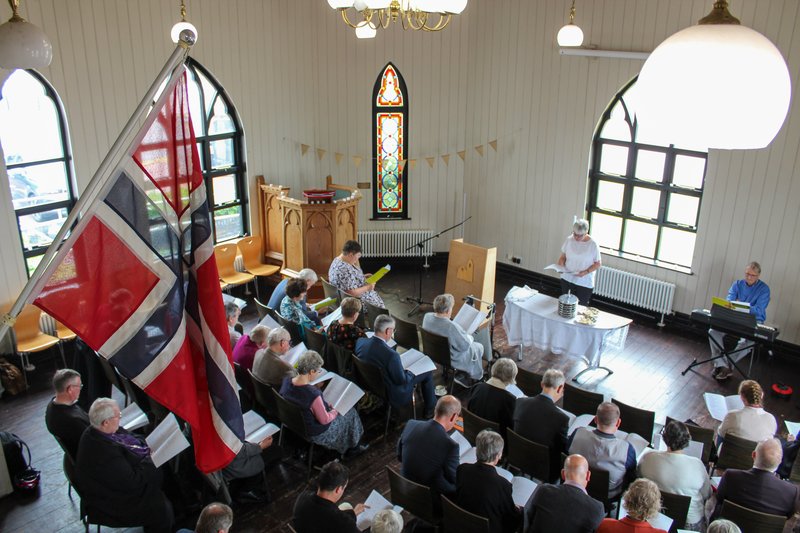Ecumenical covenant celebrates 50 years

Ahead of Covenant Sunday, delegates from each part of the Commission of the Covenanted Churches in Wales gathered in Cardiff to celebrate fifty years of the Welsh Covenant, an ecumenical partnership between five Christian traditions.
The Welsh Covenant was established in 1975 in order to pursue the goal of forming a ‘Church Uniting in Wales’. One of the key issues has been to explore how the members churches of the Covenant might recognise fully the ministry of those ordained in other traditions. This would allow unrestricted exchange of ordained ministry across the traditions and strengthen Christian witness in Wales. The Church in Wales is a founding member of the Covenant and the other four partners are the Methodist Church of Great Britain, the Presbyterian Church of Wales, the United Reformed Church and certain Baptist churches. The Covenanted Churches are also members of Cytûn – Churches Together in Wales.
This Covenant reflects a pledge that ecumenism should not be an optional extra but is instead the will of Christ that his flock shall be one (John 17.21). The divisions of centuries, between Catholic and Protestant, between Church and Chapel, between Welsh and English, still impacts on Christian mission today, but we can do a lot more together than we can apart.
The Bishop of St Asaph and former Chair of the Commission of the Covenanted Churches in Wales, Rt Revd Gregory Cameron says: “The signing of the Covenant of Unity between five of the Christian denominations in Wales fifty years ago was a bold step forward in church co-operation. It has yielded many fruits, which we can celebrate with passion and hope.”
The service on Saturday highlighted many of these fruits, as well as looking forward in anticipation towards the work of realising the dream of unity expressed by the original ecumenical pioneers of 1975. Communion was shared, and Revd Dr Susan Durber, United Reformed Church (URC) minister and World Council of Churches President of Europe, gave a sermon in which she reflected on her ordination and on the radical hope for unity that fuelled the Council of Nicaea, which we are celebrating the 1700th anniversary of this year. She said: “I am impatient for more than a vague ‘spirit of ecumenism’, and I pray for a deep unity that is visible, that mends wounds, that creates something new and restored from the broken fragments of church history; ambitious, visionary, recklessly enthusiastic, zealous, strong enough to answer with an ‘Amen’ the prayer of Christ that ‘they may be one’.”
As we look ahead with hope for the future, here’s the concluding sentence of the Covenant, signed in 1975: “Accordingly we enter now into this solemn Covenant before God and with one another, to work and pray in common obedience to our Lord Jesus Christ, in order that by the Holy Spirit we may be brought into one visible church to serve together in mission to the glory of God the Father.”